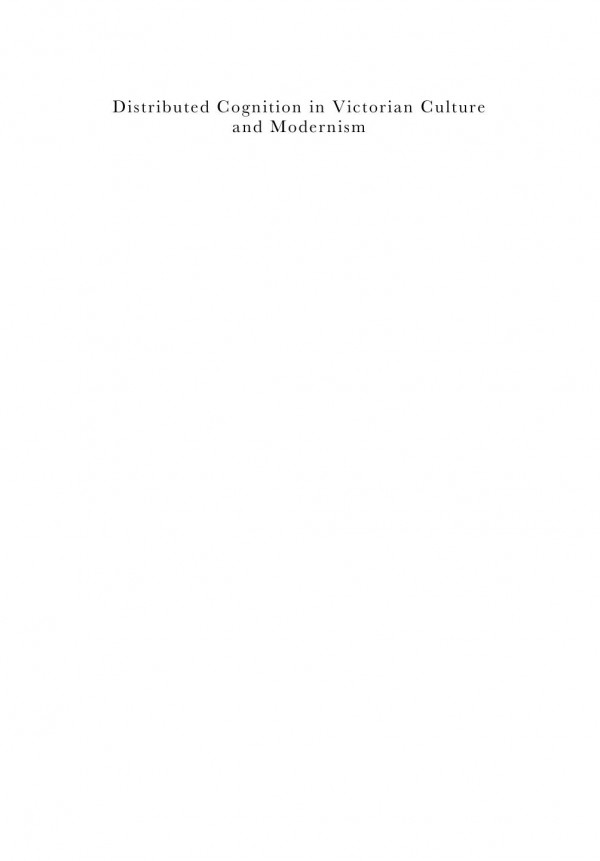

Most ebook files are in PDF format, so you can easily read them using various software such as Foxit Reader or directly on the Google Chrome browser.
Some ebook files are released by publishers in other formats such as .awz, .mobi, .epub, .fb2, etc. You may need to install specific software to read these formats on mobile/PC, such as Calibre.
Please read the tutorial at this link: https://ebookbell.com/faq
We offer FREE conversion to the popular formats you request; however, this may take some time. Therefore, right after payment, please email us, and we will try to provide the service as quickly as possible.
For some exceptional file formats or broken links (if any), please refrain from opening any disputes. Instead, email us first, and we will try to assist within a maximum of 6 hours.
EbookBell Team

4.0
16 reviewsThis book brings together 11 essays by international specialists in Victorian culture and modernism and provides a general and period-specific introduction to distributed cognition and the cognitive humanities. Together, they revitalise our reading of Victorian and modernist works in the fields of history of technology, science and medicine, material culture, philosophy, art and literary studies by bringing to bear recent insights in cognitive science and philosophy of mind on the ways in which cognition is distributed across brain, body and world.
Miranda Anderson, University of Stirling and University of Edinburgh, UK.
Marco Bernini, Durham University, UK.
Melba Cuddy-Keane, University of Toronto, Canada.
Peter Garratt, Durham University.
Adam Lively, University of London, UK.
Ben Morgan, Worcester College and University of Oxford, UK.
Andrew Michael Roberts, Universities of Dundee and St Andrews, UK.
Mark Sprevak, University of Edinburgh, UK.
Marion Thain, King’s College London.
Emily Troscianko, University of Oxford, UK.
Kerry Watson, Scottish National Gallery of Modern Art, UK.
Michael Wheeler, University of Stirling, UK.
Eleanore Widger, Scottish Poetry Library, UK.